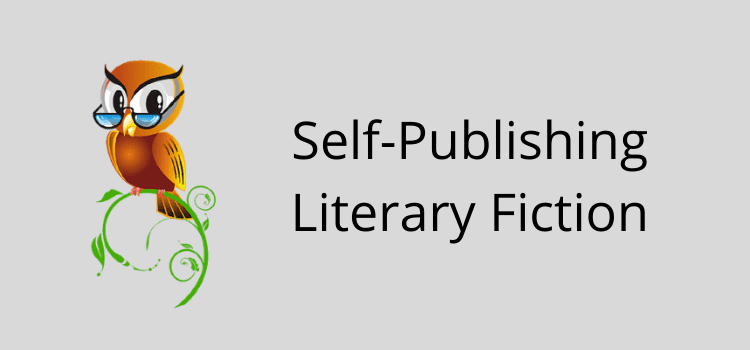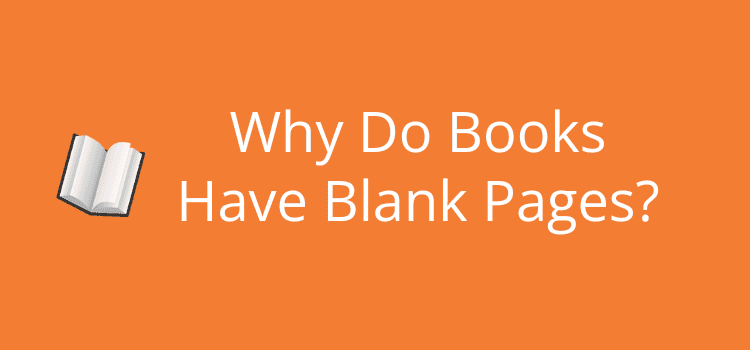
Will self-publishing give literary fiction a new lease of life?
Literary fiction is a special category of books that is often not easy to define.
It is much more obvious to categorize genre fiction. For example, science fiction, romance, and fantasy follow an expected storyline and plot. In other words, the reader knows what to expect.
The other difference between literary fiction and genre fiction is often how challenging a book is to read.
What is literary fiction?
You could define literary fiction simply as a story that is much more character-driven than plot-driven.
Unlike popular fiction, there’s more emphasis on prose, symbolism, allegory, and the human condition. It’s more exploratory than explanatory.
Therefore, the story is not necessarily about the main character surviving a calamity but about how they will feel about it.
You could also say that it’s a fiction category. But it doesn’t follow the general rules of genre storytelling. It’s often more introspective than extroverted.
In George Orwell’s Nineteen Eighty-Four, the notion that good always overcomes evil is tipped upside down.
But many readers today want quick gratification, and literary fiction books can seem too difficult to read.
In an interview with The Guardian, Will Self said this about Harry Potter books. “The truth is that the books ushered in the kidult era we’re currently having to endure.”
It’s not unusual in literary fiction for endings to be sad or sudden or to leave it up to the reader to find an explanation.
Some books even end without a resolution, which can leave the reader trying to find meaning.
In other words, they are not easy books to read and are never light entertainment.
Literary fiction in decline

Literary fiction is in crisis, and sales have dropped dramatically, according to a report by Arts Council England.
The report suggests that one reason for the decline in literary fiction sales is the recession, which occurred at the same time as the rise of cheap and easy entertainment.
“In comparison with our smartphones, literary fiction is often ‘difficult’ and expensive: it isn’t free, and it requires more concentration than Facebook or Candy Crush,” the report’s authors write.
For literary writers, it’s probably no surprise. The writing has been on the wall for many years now.
If you write literary fiction today, it’s becoming more difficult to find publishers willing to invest in a book that very few people will want to buy and read.
When I checked the top books on the Penguin Random House website, the number one bestseller was Of Mice and Men by John Steinbeck, which was first published in 1937.
In second place is The Handmaid’s Tale by Margaret Atwood, published in 1985. Coming in third is Things Fall Apart by Chinua Achebe, published in 1958.
It’s not a good sign for new authors looking for an advance and publishing contract.
Is self-publishing the future of literary fiction?
The answer to the question can only be that it’s the only future. If traditional publishers believe that there is no profit to be made, they won’t be publishing many books at all.
But there are still many readers out there who want to read books that are challenging and give greater depth.
Yes, it might be a smaller target market than for a genre writer, but it’s still there.
The challenge for literary writers is to identify a market and promote their books as best they can.
Marketing literary fiction books
Yes, this is the difficult part, especially if you want to sell books on Amazon.
Trying to find out how many Kindle ebooks there are is almost impossible now.
When I checked, this is the number Amazon gives.
Over 60,000 results for Kindle Store: Kindle eBooks: Literature & Fiction: Literary Fiction
The magic word here is over. There could be many thousand more books published in this one category.
The problem for new self-publishing authors of literary fiction is that there is a lot of rubbish and poorly categorized books on Amazon.
Most new and inexperienced authors have no idea about selecting categories and keywords for a book.
Well, my book is literature, so it must be literary fiction. Or, my book is new, so it must be contemporary fiction.
When a book is listed under either of these two broad categories, it will be lost in a forest of competing books and stand no chance of selling.
Placement is the most vital element

Think of placement like where your book would be in a bookstore.
It certainly wouldn’t be on the display shelves at the front of the store.
But it might be in the alphabetical section by authors or on the genre shelves.
Online placement works in a similar manner.
You want to get your book placed where browsing readers can find it. It is unlikely to be (upfront) in the bestseller lists.
But with good placement, you can get a book to rank high in smaller and less competitive sub-categories.
If you are self-publishing literary fiction, be aware that the genre includes many themes and sub-categories.
It’s often not easy to define a literary book. But there is almost always a link to one of the classic genres.
Nineteen Eighty-Four, for example, would probably fit into the dystopian genre.
Many self-publishing authors know the value of placement.
The best way is to find less competitive categories and search keywords that are more likely to help you sell books.
With the right tools, you can also research books that are competitive with yours and investigate sales volume.
For example, it suggests that the following sub-categories would perform much better than the main category.
Literature & Fiction > Literary Fiction > Action & Adventure
Literature & Fiction > Literary Fiction > Mystery, Thriller & Suspense
Women Writers & Fiction > Women’s Literary Fiction
Literature & Fiction > Literary Fiction > Psychological
The way to find new readers is to appeal to as many reading taste elements as possible that fit your book.
Accept the present and future of books
You often read that no one reads literary fiction anymore. But it’s not true.
What is true is that reading tastes have changed.
The need for simplicity and instant gratification has reduced the literary reading market to the point where it’s no longer a viable gamble for big publishers.
However, readers who want a deeper read are still there, and self-publishing is the only logical way to reach them.
It doesn’t matter if you are writing literary fiction or genre fiction. It’s very easy to self-publish.
However, it isn’t easy to sell books unless you invest time, effort, and money in effective book marketing and promotion.
So, the odds are not necessarily weighted against literary fiction.
Publishing has always been a tough business, and nothing has changed.
The positive difference now is that authors have a choice of publishing models and the possibility to connect with readers.
These factors are extremely beneficial for new authors.
With determination, you can succeed in self-publishing in any genre. But never expect it to be an easy ride.
Related reading: Are You Writing A Memoir Or Autobiography?
Share This Article



Thanks for writing this, it was an interesting read! I’ve just self-published my debut short story collection (literary fiction or contemporary fiction) and I’ve had a hard time marketing it, but it was expected. I’m a ghostwriter in my day job so I understand how to market fantasy, thrillers, romance etc. but there is less of a tangible community for literary works because they are all so different. As you say, Orwell’s works may be considered literary, but only a percentage of those who enjoy literary fiction might enjoy Nineteen Eighty Four.
Great read, thanks.
An interesting post, Derek. I don’t write literery fiction, and read little of it, but it would be a traggedy if it no longer exists.